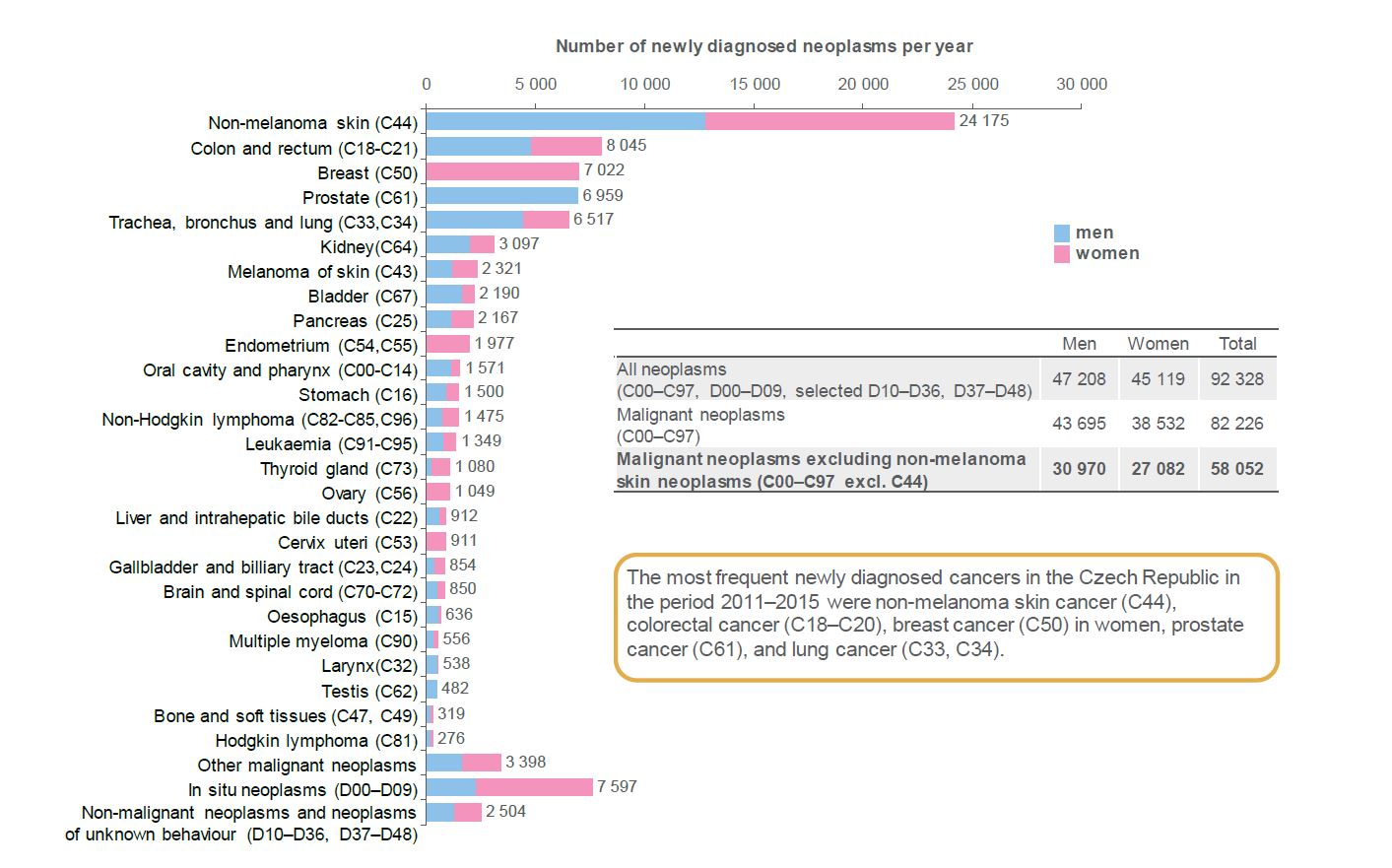The cancer burden in the Czech population ranks among the highest worldwide and has been growing continuously. Each year in the Czech Republic (with a total population over 10.5 million), over 82,000 people are diagnosed with cancer and over 27,000 patients die from it. Czech men are most frequently affected by prostate cancer, closely followed by colorectal and lung cancer. The most frequent diagnoses in Czech women are breast cancer, followed by colorectal, lung, and uterine cancer. Lung, colorectal, breast, prostate, and pancreatic cancers rank among the most frequent ones with respect to mortality rates.
Incidence of individual cancer diagnoses in Czech men and women in the period 2011–2015. Source: Czech National Cancer Registry
Czech National Cancer Registry (NOR)
The Czech Republic possesses a unique instrument in this field that can serve as a model to other EU Member States. The Czech Republic keeps on a long-term basis (since 1977) its National Oncological Register (NOR) which is counted amongst the largest and highest quality databases in Europe. Above that, it is a representative and complete database as it contains data on all patients for the entire period under consideration. The keeping of this database is prescribed by law and is therefore obligatory and at the same time is an essential element in the planning of demand for oncological care and assessment of its results.
This almost 40-year time series makes it possible to perform long-term assessment of epidemiological trends for individual cancer types, evaluation of treatment outcomes and patient survival rates and, last but not least, to predict the numbers of cancer patients to be treated in the years to come. The data from NOR are absolutely essential for the planning of the needs of oncological care and the evaluation of its impact.
A presentation of epidemiology of malignant tumours in the Czech Republic is available to every citizen through the unique interactive national portal www.svod.cz.
Clinical registries
In close connection to this national population registry the CSO ensures the running of other clinical registries following mainly the most expensive anti-tumour treatment and its results. In individual complex oncological centres registries following the quality of provided care are also being established.
The Czech Society for Oncology approaches expensive biological treatment with great responsibility. The CSO in cooperation with the Biostatics and Analysis Institute of the Masaryk University (IBA), Masaryk Oncological Institute and Complex Oncological Centres keeps long-term registries of expensive care.
Two basic principles are adhered to when working with the registries – prediction (estimation of the number of patients treated in future years) and retrospect (following the process and results of expensive treatment). The retrospective data assesses such aspects of treatment as correct indication of the observed therapy, the process of therapy and its safety, the causes of premature ending and its frequency, immediate and long-term results of treatment. Collective of authors from CSO and IBA elaborated an analysis of all the drug registries which states that expensive treatment is distributed among oncological patients in a controlled manner, and only to those patients with fully finalized diagnosis. Biological treatment is only given to patients whose general state allows them to profit from the care offered.

